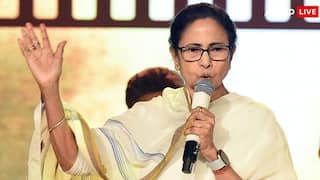Union Budget 2022: Fintech Industry Eyes Greater Credit Access To MSMEs
According to the leaders of fintech industry, India sets upon the goal of hitting the $5-trillion mark by 2025, with a majority of the population adopting digital means to access payments and financial services

New Delhi: As Finance Minister Nirmala Sitharaman will be presenting the Union Budget 2022 on February 1, the Indian fintech industry is eyeing more opportunities and allocations, while simultaneously vying to soften the blows from the Covid-19 pandemic.
Here are some of the expectations of the fintech industry from the Union Budget:
Dilip Modi, founder, Spice Money
The fintech industry has fared really well in the past two years with the pandemic playing a key role in the digital adoption of financial services across the country. With the government making strides through several initiatives, including the recently set up Fintech Department and the introduction of Payment Investment Development Fund (PIDF), the sector is expecting to see more opportunities and initiatives being taken forward by the government that will help in the expansion of the market, influence customer behaviour, and impact long-term changes in the industry. As our country sets upon the goal of hitting the $5-trillion mark by 2025, I expect the digital economy to grow even further, with a majority of India’s population and small businesses adopting digital means to access payments and financial services. The rural sector will play a huge part in achieving this economic landmark, and the Union Budget 2022-23 should ensure there’s a special focus on bolstering rural development. Exemptions on procurement of point of sale terminals, the GST rates for rural banking agents remitting funds among households, and subsidies to compensate for merchant discount rate (MDR) waiver are among some of the measures that will help in promoting digital awareness and initiatives across the country.
Anurag Sinha, co-founder and CEO, OneScore & OneCard
The fintech space has not only accelerated the ‘Digital India’ initiative by years, but introduced an array of new-age platforms powered by super apps offering multiple services through few swipes on a mobile, significantly influencing digital adoption across the spectrum, including payments and credit. While the pandemic triggered a steep rise in demand for consumer credit, it also highlighted the lack of credit penetration in the country. However, given the rise of smartphone usage, shift to digital avenues and the increasing number of digitally-savvy consumers, licensed digital banks can effectively enhance reach and bridge this gap. A digital bank licence regime will therefore enable fintechs to leverage their tech-stack optimally to create credit products and user experience which will redefine the investment and consumption landscape in the country.
Lalit Mehta, co-founder and CEO, Decimal Technologies
Year 2021 was a transformative year for the fintech industry, with significant technology adoption in financial services. While traditional lending still accounts as a major credit provider in India, digital lending has picked up pace with the ease of process, less paperwork, and use of alternative data sources, making it a key enabler for the MSME sector. Fintech players have already shown willingness to work with the government to curb the menace of the illegal digital lending apps. The Budget 2022 should introduce regulations that will help in greater credit access to the MSMEs and curbing illegal activities, while building trust in the digital lending process for the last mile. In line with the government’s goal of creating a digital economy, introducing credit schemes will incentivise the sector and help in providing timely credit to the MSMEs that have struggled due to the lack of credit accessibility through traditional means of lending which has directly affected their business opportunity. We have also seen a rise in the number of start-ups who have turned unicorns in the last year that showcases the potential of the start-up ecosystem in India. We expect the government to introduce regulatory changes that would create an easy line of access for the start-ups and the MSMEs to secure credit from online lending players. This will further help in boosting our economy.
Madhusudan Ekambaram, co-founder and CEO, KreditBee and co-founder, FACE (Fintech Association for Consumer Empowerment)
The Union Budget 2022-23 is a crucial one, considering the economy's efforts to fully recover and set on a growth path. In this imperative, focus on financial inclusion is very significant. The government’s recognition of the enhanced operations and effectiveness of fintechs to reach out to the unserved and underserved population, as evident from multiple initiatives in recent times, is encouraging. We expect this emphasis to become more prominent in the upcoming budget. It is essential that the government announce measures to ease the liquidity flow to NBFCs and fintechs. Further, while ensuring the right degree of regulation, relaxation of norms and tax liberalisation to some extent will allow the fintech sector to boost their reach and operate effectively to offer innovative credit solutions to the borrowers. Focus should also be on enhancing the country’s digitisation, to empower the consumers to avail various credit products.
Shachindra Nath, executive chairman and managing director, U GRO Capital
The Union Budget 2022-23 is highly crucial to align the Indian economy’s growth trajectory. It is essential that the finance minister announces effective measures to enable speedy recovery and growth of the MSMEs, considering the sector’s significant contribution to the economy. It is encouraging to see the government's support for the MSME sector in the last 12-15 months and we believe the efforts will only become more prominent in the time to come. In the past few years, operationally nimble and technologically oriented NBFCs and fintechs have deepened the credit penetration to the underserved regions of the country. Hence, in the upcoming budget, policymakers should provide due consideration to boost liquidity support to the NBFCs as well as encourage frameworks like co-lending, which will greatly boost the reach of financial institutions and progress in the financial inclusion imperative. EASE 4.0 talks about co-lending between banks and NBFC as a means to increase the credit penetration, however, the treatment of Tax Deduction at Source (TDS) treatment for the NBFCs and banks are different and that is proving to be a major operational challenge to accelerate credit. It is expected that TDS rules would be harmonised between banks and NBFCs.
Related Video
Union Budget 2025: Arvind Kejriwal lists the shortcomings of the Modi government's budget | ABP News | AAP





































